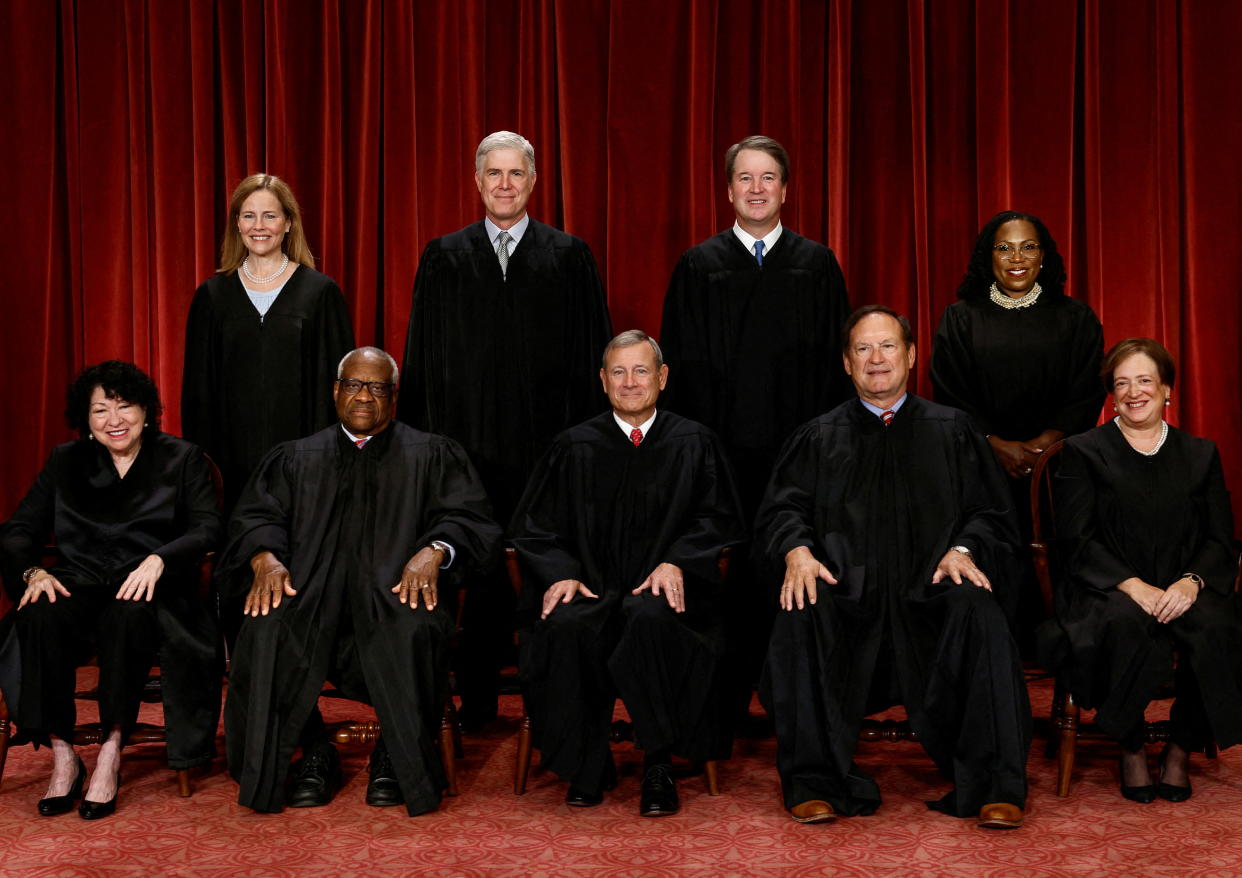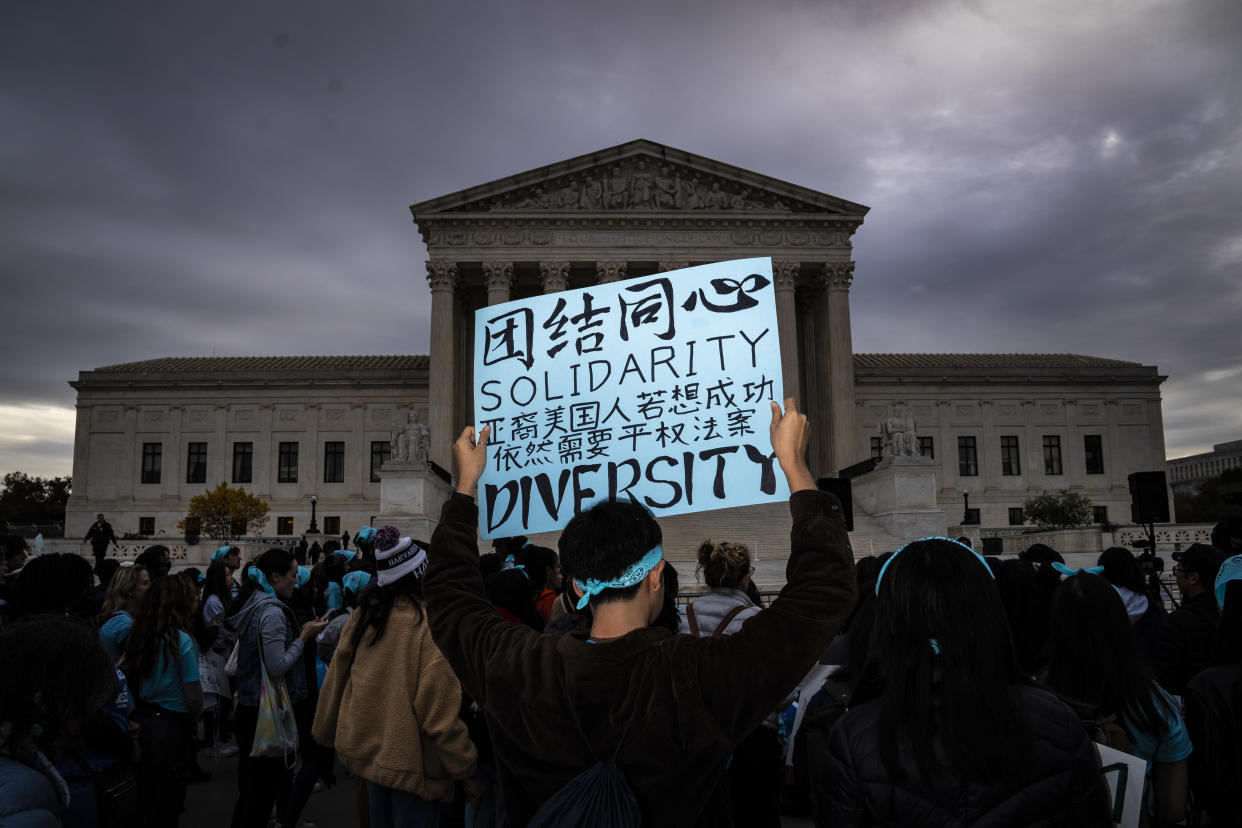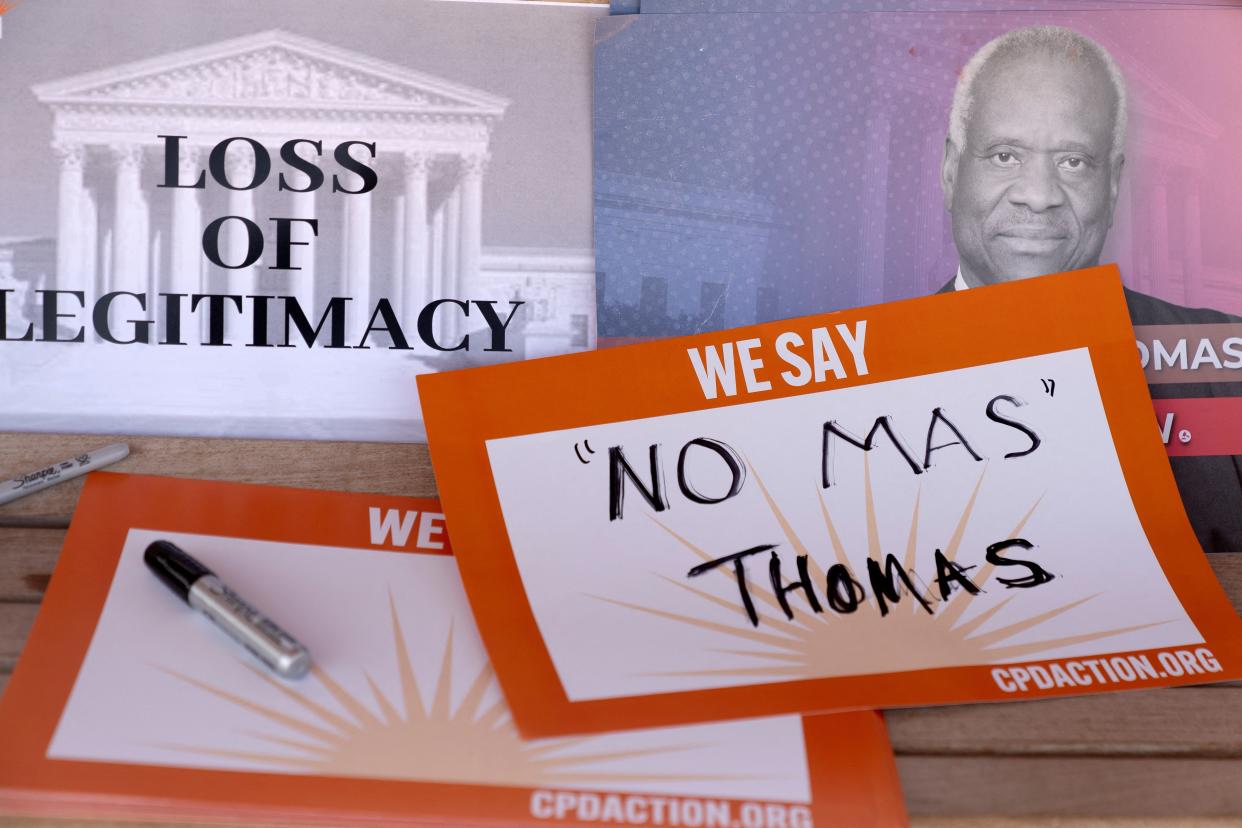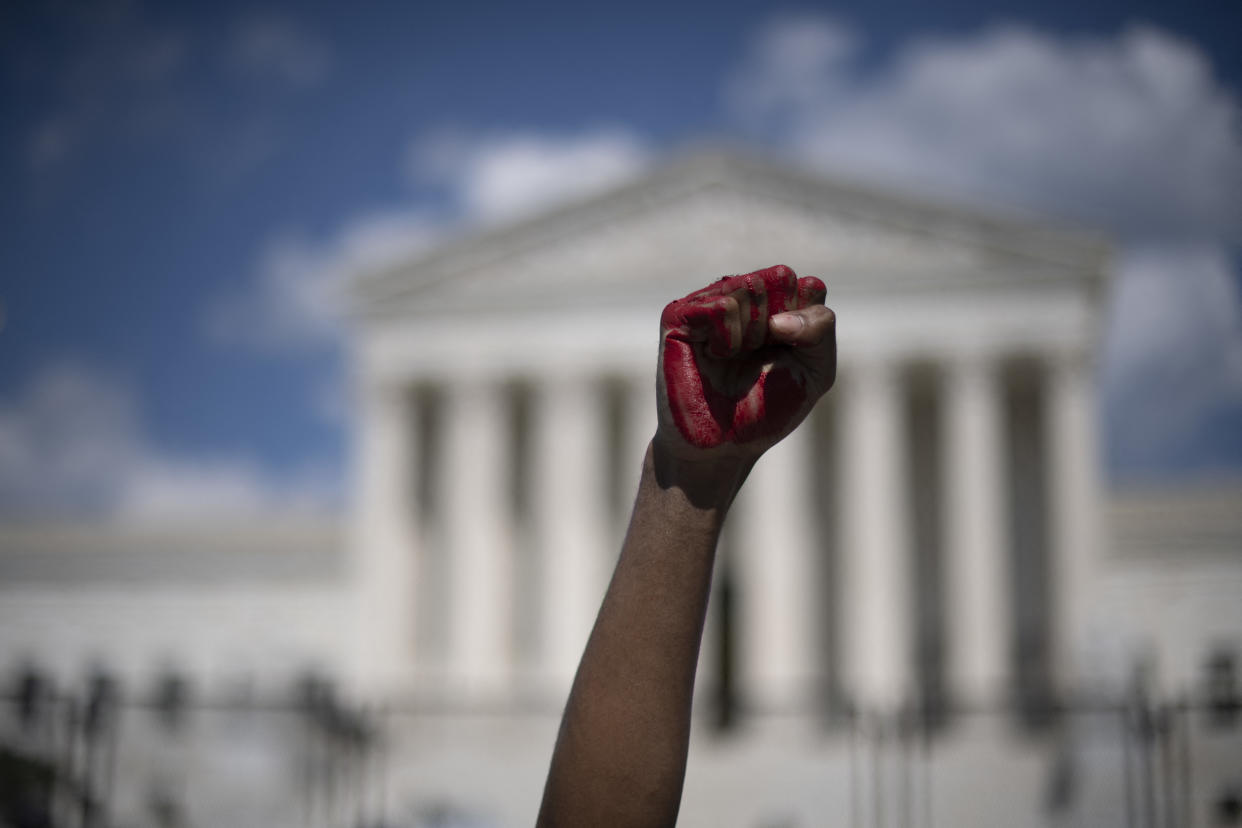Supreme Court decisions: Poll finds SCOTUS is deeply unpopular ahead of major rulings

A new poll has found that the Supreme Court is deeply unpopular as it prepares to hand down a slate of decisions on LGBTQ rights, affirmative action and President Biden's student loan forgiveness plan.
A national survey from Quinnipiac University released Wednesday found just 30% of registered voters approve of the court’s job performance, while 59% disapprove — the lowest rating since the poll began asking the question in 2004. Only 11% of respondents identifying as Democrats and 29% of those identifying as independents approved of the court.
Additionally, 68% of Americans think the Supreme Court is mainly motivated by politics versus 25% who think it's motivated by the law. The idea of imposing term limits on the justices received bipartisan majority support (63%) while just 29% were opposed. A slim majority of Republicans (51%) favored imposing term limits, together with 78% of Democrats and 63% of independents.
Major decisions ahead

Over the next few weeks the court’s 6-3 conservative majority is expected to hand down a number of major decisions. Earlier this month in a surprise ruling, two of the conservative justices flipped to rule in favor of Black voters in Alabama who said the state had violated the Voting Rights Act via gerrymandering.
Last year, the court issued a series of rulings that were unpopular with the American public, most notably a decision that overturned Roe v. Wade.
Among the cases the Supreme Court will be issuing rulings on before the term ends are challenges to race-conscious admission policies — or affirmative action — at Harvard, which is a private institution, and the University of North Carolina, which is a state school. These cases are known as Students for Fair Admissions v. University of North Carolina and Students for Fair Admissions v. President and Fellows of Harvard College.
They’re also considering challenges to the White House’s student loan debt relief plan, which is being challenged by six Republican-led states and two borrowers who did not qualify for the program. These cases are known as Biden v. Nebraska and Department of Education v. Brown.
The court will also rule on an attempt by the GOP-controlled North Carolina legislature to reimpose a congressional map that was thrown out by the state Supreme Court (Moore v. Harper). If the North Carolina legislature wins its case, it could give state legislatures nationwide near-total control over how federal elections are conducted.
Additionally, the court will decide whether a Colorado web designer is legally allowed to refuse to create wedding websites for same-sex couples (303 Creative LLC v. Elenis). A state law would fine her for discrimination if she did so, but the designer is arguing that it’s a violation of her First Amendment rights to be forced to create something to which she objects.
Lingering scandals

The Quinnipiac survey was conducted from Saturday through Monday, meaning all of the opinions were recorded before ProPublica published a report Tuesday evening about conservative Justice Samuel Alito. According to the outlet, Alito and prominent conservative legal activist Leonard Leo went on an unreported luxury fishing trip with a Republican billionaire who had business before the court.
Alito did not disclose the trip or respond to ProPublica’s inquiries. He did, however, publish an op-ed in the Wall Street Journal defending himself from allegations in the article while admitting that he went on the trip.
The Alito news was only the latest report to come out in recent months about the court’s conservative justices. ProPublica published a series of stories about the close ties between conservative Justice Clarence Thomas and a different Republican billionaire, Harlan Crow.
Additionally, the Washington Post reported undisclosed payments from Leo to Thomas’s wife, Ginny, a conservative activist who pushed to overturn the 2020 election results.
Another Republican-appointed justice, Neil Gorsuch, has recently been criticized for selling a tract of land to the head of a law firm that argues cases before the court. Liberal critics have also highlighted the work of Chief Justice John Roberts’s wife, who has made millions of dollars as a recruiter for elite law firms and corporations.
In a Wednesday op-ed, the Wall Street Journal’s conservative editorial board came to the defense of Alito, arguing that he had not violated ethics rules alleging that he was the victim of a baseless smear campaign.
“This isn’t about ethics,” the op-ed said. “This is about the left’s fury at having lost control of the Court, which they had counted on for decades as a second legislature to impose their priorities when they couldn’t persuade Congress. They can’t accept that loss, and they will destroy the Court if they must to get that control back.”
Numerous polls find the court lacks public support

The Quinnipiac poll is only the latest one showing a lack of public support for the nation’s highest court. Gallup polling last summer found record low approval for the institution, while a September Marquette Law School poll found that 51% of Americans favored expanding the Supreme Court.
An April Yahoo News/YouGov poll found that only 12% of Americans surveyed reported that they had a great deal of confidence in the Supreme Court, with 25% saying they had none. Forty-four percent of respondents in total said they had confidence in the way the court was handling its job, versus 45% who disapproved.
